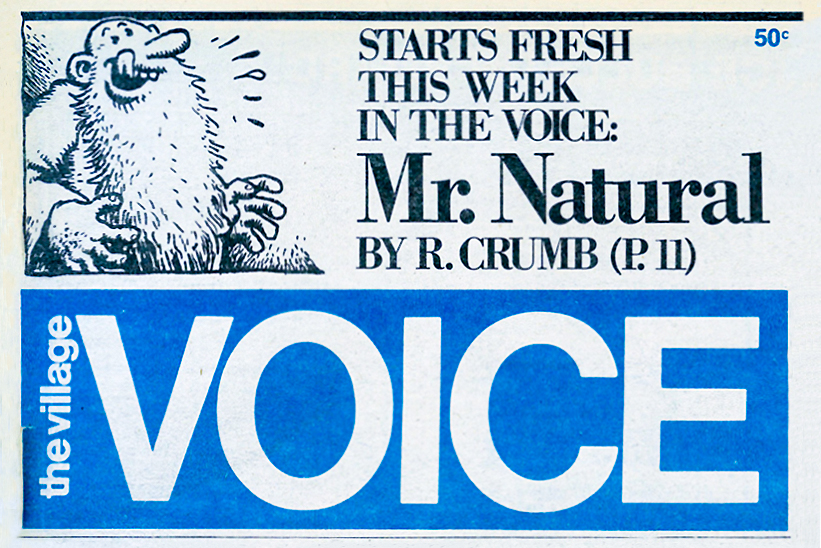Maybe you noticed, maybe you didn’t, but The Village Voice had a final hardening of the arteries and died last week.
Maybe you noticed because you still remember when The Voice championed an alternative style of journalism and an alternative America as well. But maybe you didn’t notice because who was left to tell its story?
In its heyday, The Voice influenced a couple of generations of writers – and readers – who found daily journalism stuffy and predictable. And particularly in safe, post-war, grey-flannel-suit America, it influenced all those who lived in Scarsdale, Pikesville or Towson but whose hearts were in Greenwich Village, where the Beat Generation was writing poetry instead of corporate profit-and-loss statements.
Founded in 1955, The Voice was the best-selling weekly newspaper in the United States by 1967 and its single-day circulation higher than 95 percent of big-city American dailies. Its pages were bulging with ads. Its life span, 63 years, was longer than Life magazine, and its influence nearly as profound.
The Voice helped create a state of mind: You could rage against The Machine, you didn’t have to march lock-step into bland, predictable, button-down America.
“The Voice changed journalism,” Louis Menand wrote in The New Yorker a decade ago, “because it changed the idea of what it was to be a journalist.”
In that mindset, it wasn’t enough for a reporter to be “objective.” Who wanted to be “objective” about injustice?
Once a week, the paper offered us Jules Feiffer and Jack Newfield, Susan Brownmiller and Joe Flaherty, and Nat Hentoff and Hilton Als, and Wayne Barrett, whose reporting on the young real estate operator Donald Trump was years ahead of the competition.
It was Jack Newfield who said editors at The Voice didn’t edit, they just “orchestrated their writers’ obsessions.”
A lot of those writers’ names are forgotten now, but in their heyday their influence was so profound that they inspired copycat alternative weeklies across the country. Some of them – remember a weekly in Baltimore, run by Larry Singer and Jerry Litofsky, called The Paper? – lasted several years. And others, such as the Baltimore City Paper, lasted several decades.
Both of them, and dozens more across the country, were spiritual children of The Village Voice.
In post-war America, the daily papers (and their advertisers) were following their readers out to suburbia. The Voice spoke to those left behind in gritty urban neighborhoods. It offered a kind of underground mentality, championing progressive politics, challenging the corporate bullies and the real estate developers who were turning the city into a stark mosaic of haves and have-nots. They were covering the stuff overlooked by the dailies, including the life of literature and theater and off-beat movies.
The Voice was, as John Nichols wrote in The New Yorker this week, “ready to pick fights rather than merely cover them.”
But now, like so many print operations, The Voice has fallen victim to changing habits of onetime readers and advertisers. Maybe you noticed, because The Voice mattered to a lot of people for a very long time.
Maybe you didn’t notice, because who’s left to tell its story?
 A former Baltimore Sun columnist and WJZ-TV commentator, Michael Olesker is the author of six books. His most recent, “Front Stoops in the Fifties: Baltimore Legends Come of Age,” has just been reissued in paperback by the Johns Hopkins University Press.
A former Baltimore Sun columnist and WJZ-TV commentator, Michael Olesker is the author of six books. His most recent, “Front Stoops in the Fifties: Baltimore Legends Come of Age,” has just been reissued in paperback by the Johns Hopkins University Press.





